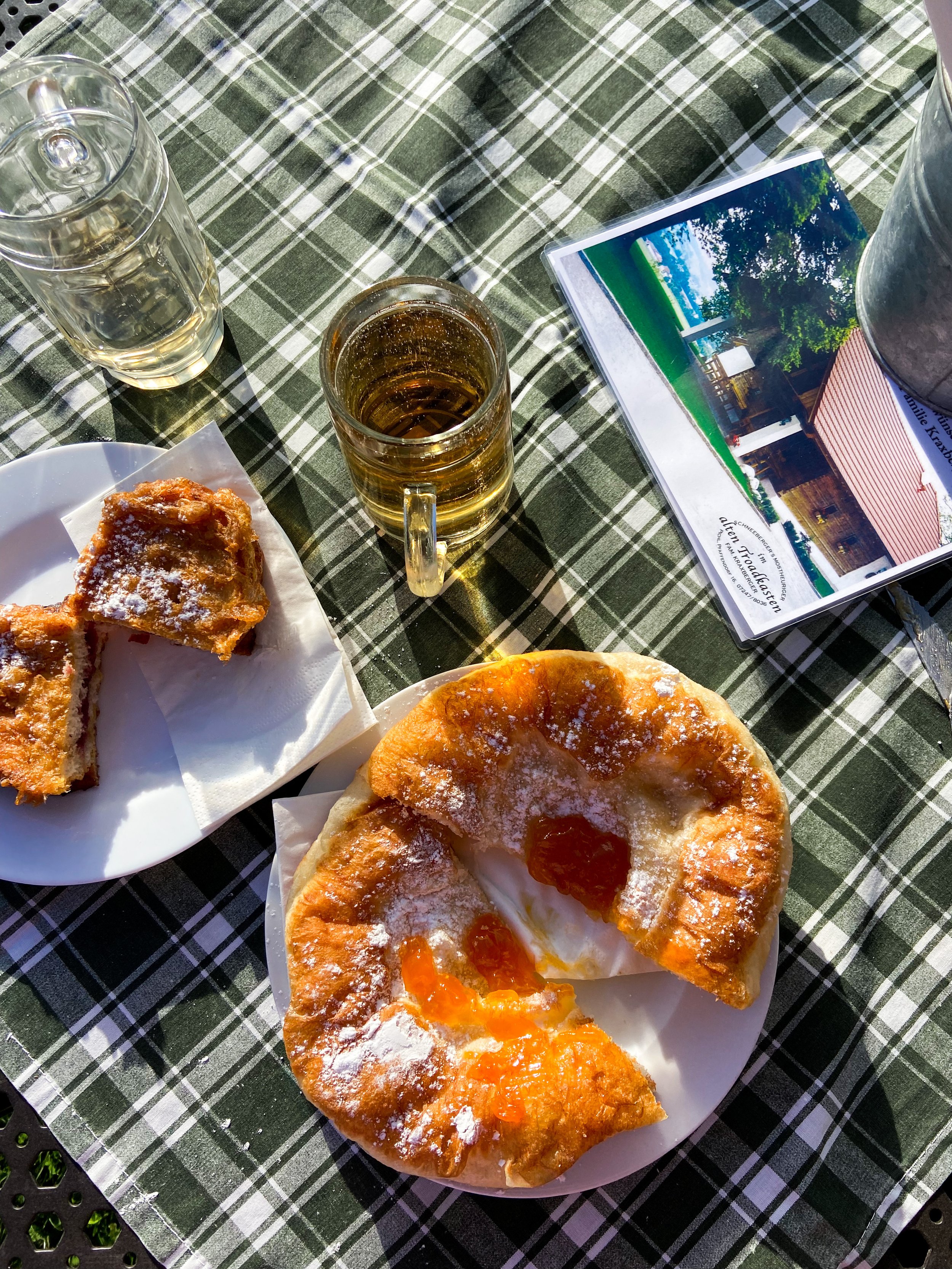Pastries in Austria
Perched atop a family-run cafe overlooking the entirety of Linz (a small town in Austria), I sat across Jana, a friend whom I was seeing for the first time in three years. Jana and I converged serendipitously before the pandemic while individually backpacking Australia. Finally, I was close enough to pay a visit to her hometown, where we caught up over plates of topfenstrudel and marillenkuchen.
In discussing our lives, the topics of school and work inevitably came up. In discussing work life, she casually mentioned her schedule flexibility as Austria imposes mandatory breaks for all workers after six hours of work to ensure that employees are getting enough rest. Having grown up in the notorious work culture of Hong Kong, I was shocked.
Originally in Europe to study Doughnut Economics in Amsterdam and attend the International Forum for Wellbeing in Grenoble, I was exploring ways that communities may achieve societal wellbeing. This conversation reminded me that the answer will not be found through novel economic frameworks; rather, it is deeply embedded in cultural norms and our relationships to work and rest.
Growing up attending an international school in Hong Kong, I have wrestled the simultaneous pull between the Western, individualistic values of “pursuing your passion” and the more collectivist mindset of working to support your family. I have benefited from the support of educational institutions encouraging unconventional pathways, yet struggle to balance this with the cultural expectations of my traditional upbringing. Around me, many people have been taught to view work as a manifestation of our worth, but I have been lucky to instead view it as an extension of our multifaceted selves.
When success is focused on output and evaluated with little consideration beyond material wealth, it inaccurately reflects the true indicators worth measuring. This is emphasized by the key economic indicator of GDP, which fails to consider the various factors that make up “wealth”. Instead, this measurement includes detrimental factors merely because they generate spending and support “growth”. Moreover, this indicator doesn’t account for who possesses this wealth, ignoring whether this wealth is accumulated among the top 1%. Currently, our intersecting social, environmental, and economic crises are symptomatic of a flawed system that measures “everything except that which makes life worthwhile”. GDP is a false proxy for human progress and fulfillment—one that has misled societies into believing that endless growth is conducive to greater wellbeing.
Hong Kong skyline
Hong kong illustrates these shortfalls as an outlying case in the otherwise correlated relationship between money and happiness. Upon returning to Hong Kong, I spoke to a friend who now works in the financial sector. She bemoaned her entry-level job, where she works 15 hours a day, with few breaks in between. While earning a generous salary, she has to sacrifice seeing friends and family and participating in any extracurriculars. On a macro level, Hong Kong maintains a relatively low Happiness Index score despite its relatively high GDP per capita—reflecting this disconnect and challenging the dominant narrative that economic growth always equates to greater wellbeing and success.
While this source of unhappiness can be traced to political tensions and resulting challenges in Hong Kong, much of this disparity can also be linked to the workplace. In Hong Kong, people average over 41 hours per work week, with the practice of overworking both common and often expected. The emphasis on output and productivity, paired with the hierarchical nature of the workplace, makes it especially difficult for workers advocate for increased rest.
A view of Costa Rica
Contrastingly, Costa Rica (where I spent a semester studying abroad last Spring) has been consistently ranked as one of the happiest countries in the world—in spite of its lower GDP (ranked 84th in 2022).
Costa Rica has a reputation for being one of the “greenest” countries in the world. Interestingly, this can be attributed to the country’s abolishment of the military following a violent civil war in 1948. As a result, funds that would otherwise be used to sustain the army have been redirected towards social programming focused on education, healthcare, infrastructure, and the environment. Costa Rica has invested in education (96% literacy) as well as environmental preservation (25% of land at national parks or biological reserves) to promote values of peace and environmental sustainability in addition to supporting a productive workforce.
While it is important to recognize that no country is perfect, it is clear that “success” cannot be confined to monetary gains and endless productivity. Rather, success can only be accurately measured through indicators and practices that holistically represent the social and environmental wellbeing of a community.
Connecting back to the conversation at the start of this article, part of this change requires shifting the culture around rest. This simple but revolutionary act supports the broader message that sustainability is not merely environmental—it also relates to mental, physical, and emotional health. In prioritizing rest, you are contributing to a narrative around sustainability that rejects the culture of endless growth and unsustainable work that comes at the detriment of human health and wellbeing.
Social and ecological wellbeing are deeply intertwined, and only when both are prioritized can a society truly thrive. When wellbeing is placed at the heart of policy and decision-making, this gives rise to an environment that enables the broader economy to thrive. When workers are given ample rest to sustain their lifestyles, they can more productively pursue projects that benefit the rest of the economy. And when an economy is driven by humans, it relies on its healthy people to survive.


